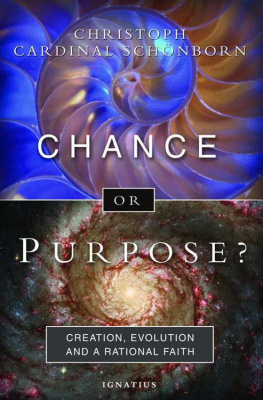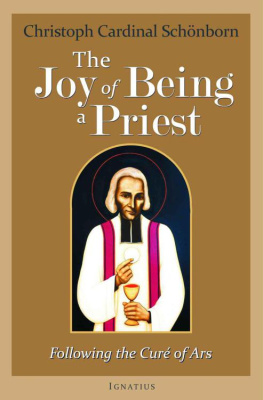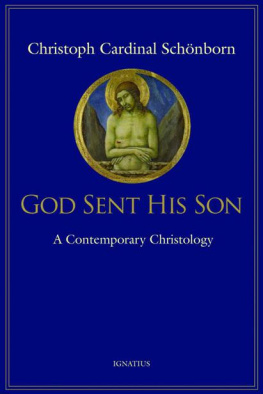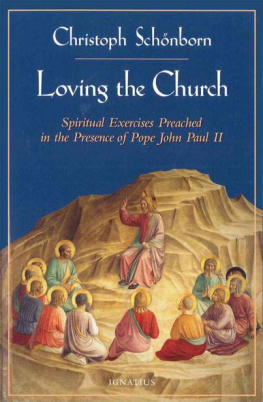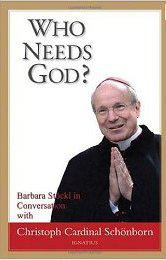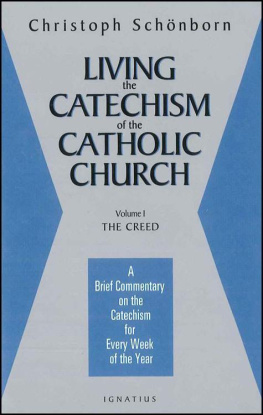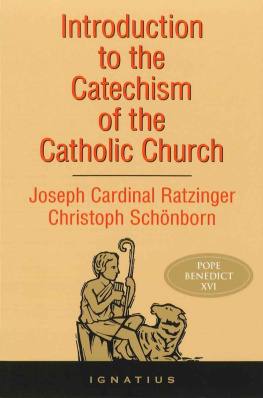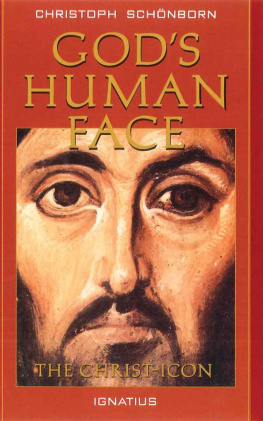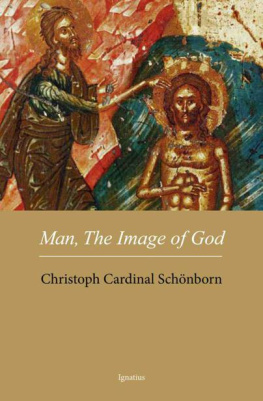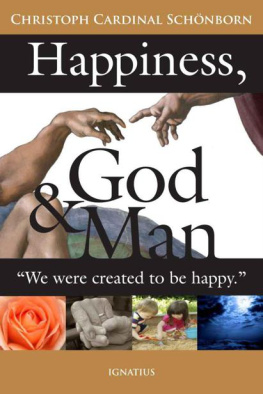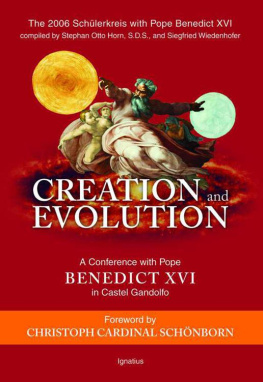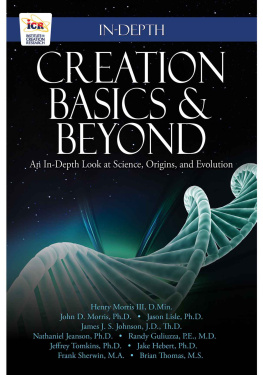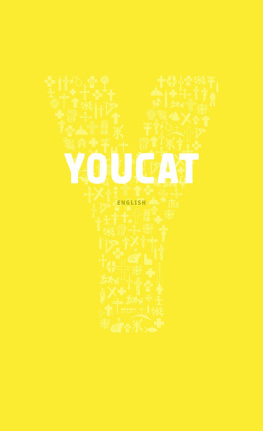CHANCE OR PURPOSE?
CHRISTOPH CARDINAL SCHNBORN
CHANCE
OR
PURPOSE?
Creation, Evolution, and Rational Faith
Edited by Hubert Philip Weber
Translated by Henry Taylor
IGNATIUS PRESS SAN FRANCISCO
Original German edition:
Ziel oder Zufall?
Schpfung und Evolution
aus der Sicht vernnftigen Glaubens
2007 by Verlag Herder GmBH, Freiburg im Breisgau
Cover art: Nautilus Shell 2007 iStockphoto
and
Spiral Galaxy M51 photo S. Beckwith (STScI)
Hubble Heritage Team, (STScI/AURA), ESA, NASA
Cover design by John Herreid
2007 Ignatius Press, San Francisco
All rights reserved
ISBN 978-1-58617-212-1
Library of Congress Control Number 2007928866
Printed in the United States of America
The Christian idea of the world is that it originated in a very complicated process of evolution but that it nevertheless still comes in its depths from the Logos. It thus bears reason in itself.
Joseph Ratzinger
Pope Benedict XVI
CONTENTS
Creation: Where Does It Come from and Where Is It Going?
Theology of Creation and the Worldview of Natural Science
Not Losing Wonder
Belief in Creation as Fanaticism?
An Outline of the Theology of Creation
What Is the Beginning?
Creation and the Freedom of God
A Look at the Biblical Message about Creation
Everything Is Created
Variety Is What God Wills
Order in Variety
Evolution and Ascent
Creation or Nature?
The Common Bond of Creatureliness
Creation to the Glory of God
God Is at Work in the WorldA Poetical Approach
Creation and Providence
Evolution as a Matter of Belief?
Continuing Providence
New Things in Creation
The Incredible Wealth of Variety
Critical Questions Put to Belief
In Search of an Answer
The Best of Worlds?
Everything That Is, Is GoodBut Limited
Can Evil Even Be Good?
Pointers toward an Answer
The World Was Created for the Sake of Man
ManA Part of Nature
Immersed in the Stream of Things Coming into Existence
The Small Distinction
The Choice between Reason and Irrationality
The Fly Was Created before You
ChristCreator of the World
In Him All Things Hold Together
Easter as a New Creation
Teilhard de ChardinWitness to Christ
Mans Dominion in the World
Listening to Creation
Right and Wrong Understandings of Dominion,
Responsibility for Creation and Science
Two Ways of Looking at ThingsTwo Stories
Neo-Darwinism and Neo-Liberalism
Neo-Darwinism and the Pedagogy of Fitness
The Struggle for an Ethics of Life
FOREWORD TO THE GERMAN EDITION
Where do we come from? How did the world come into existence? These are fundamental questions that concern everyone. Those who hold the Christian faith, and theologians especially, have to make a serious attempt to explain what it means that we believe in God, maker of heaven and earth. A series of scientific disciplines, such as biology and physics, are looking for answers to the question of how the world and man came into being. Are the answers of faith and those of science in competition with each other? Or can they exist independently of one another? Or is a co-existence even possible, in which each of the two approaches to reality retains its validity?
On July 7, 2005, an article by Cardinal Schnborn appeared in the New York Times, under the title of Finding Design in Nature. In this article the Archbishop of Vienna took a critical look at some schools of thought whose evolutionary understanding of the world claims to explain away the Christian belief in creation.
This article brought reactions from many different sides, some of which were strongly polemical. There were two things Cardinal Schnborn did not intend, as he several times emphasized in public statements. On one hand, the valuable work done by many scientists engaged in honest research should not be belittled. On the other hand, creationismthat is, the view that the first chapter of the Bible should be understood literally as a report of events, and thus along the lines of a scientific textis not an acceptable theological position. There is no bypassing an honest and serious discussion between natural science and theology, between knowledge and faith.
The discussion arising from this statement also brought positive results, and the dialogue between theology and science, for instance, was given a new impulse. One of the difficulties of dialogue is that on both sides there is often too little knowledge of the positions of the partner in the conversation, whoever that may be. Similar concepts are often used with different meanings. The conversation has to begin with the partners listening to each other, asking and answering questions and gaining a clear understanding of the limits of their own specialized knowledge so that a genuine dialogue may be initiated on that basis.
Cardinal Schnborn devoted the monthly catechetical lectures of the academic year 2005-2006 (lectures he holds on one Sunday evening each month in the cathedral of Saint Stephen in Vienna) to the theme of the theology of creation. The present book has grown out of those evening talks. The task of catechetics is to strengthen peoples faith. That is why the Archbishop of Vienna, as a theologian, quite consciously presents the position of faith, and in doing so he goes into such questions as arise from natural science or are associated with it. It is not a matter of countering particular results or theories of natural science with other results and theories. We may assume rather, as the Second Vatican Council emphasized, that theology and natural science do not contradict one another, since both are rational ways of approaching reality. A conflict may arise when one of them strays beyond its own sphere. In that sense, Cardinal Schnborn repeatedly distinguishes a scientific interest in the way that life evolved from an ideological view that attempts to understand the world as a whole, starting from the theory of evolution. Cardinal Schnborn refers to this latter as evolutionism and consciously distances himself from it.
In nine stages, Cardinal Schnborn presents the Catholic belief in God the Creator and the Christian understanding of creation and of man as having been created by God.
The first chapter mentions the difficulties confronting any theology of creation today, particularly the relation between theology and science, between faith and knowledge. The decisive question turns out to be: Is it reasonable to talk about the world as a creation and to believe in a Creator? The Christian faith presupposes an affirmative answer to these questions, before all the other themes of the theology of creation.
The second chapter begins with the first verse of Holy Scripture, with the word of creation from the Book of Genesis. Following the text of the Bible, it starts with the question of what creation means at all, how we should understand the concept of the beginning, and what Christian belief in the Creator means.
In the third chapter, the multiplicity of creation comes under scrutiny. The variety of species prompted the researches of Charles Darwin, just as it had done with many before him and continues to do with many after him. The Christian message insists that this variety is something intended by God.
The fourth chapter is devoted to an aspect that often receives too little consideration. Creation is not merely an act of God at the beginning of the world, but is continuing. Theology talks about continuing creation and about providence.
The subject of providence, however, also has another side to it: a critical challenge to our faith, which is articulated in the fifth chapter. If God guides everything, then how is it that there is so much suffering and injustice in the world?

